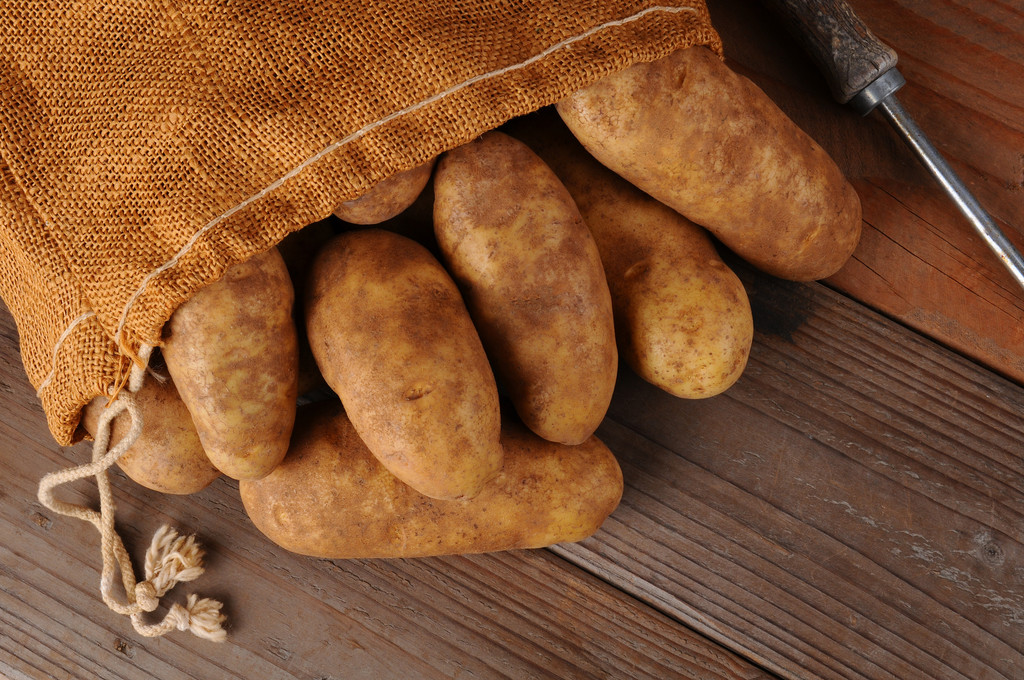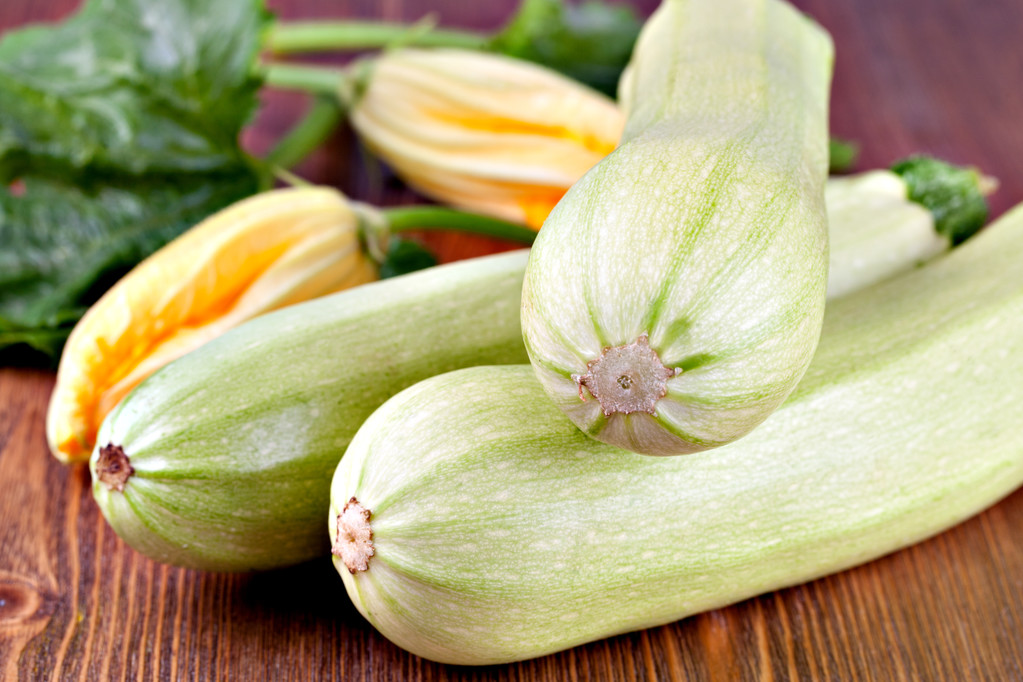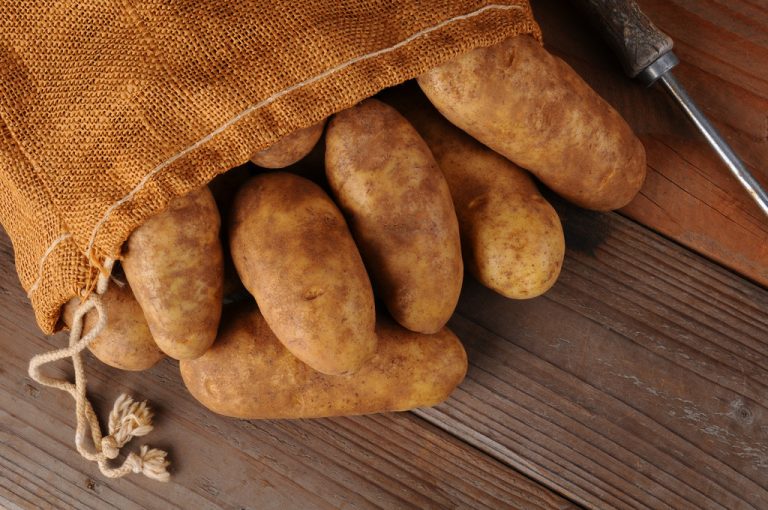Vegetables are essential for a healthy diet. However, some varieties contain toxins when raw, so you should always cook these foods before eating them. In addition to vomiting, diarrhea, stomach ache and headaches, consumption in the uncooked state can even lead to death in the worst case.

Poison in raw food: You should never eat these varieties raw
In addition to potatoes, beans, aubergines, mushrooms, cassava, elderberries and rhubarb, you should never eat zucchini raw. Because there is a risk of dangerous poisoning. In the worst case, there is even a risk of death.
1. Potatoes
You should never eat potatoes raw. The reason: the solanine contained in raw potatoes is toxic. The solanine is a glycoalkaloid and serves as a natural toxin meant to protect the potato. This substance is primarily found in the skin and in new shoots. If a potato was supposedly stored incorrectly and is already sprouting many new shoots, it is better to throw it away. Simply cutting away the shoots is not always advisable, because the more young shoots the potato has, the more solanine there is in the tuber.
The consumption of toxic solanine is reflected in nausea, diarrhea and abdominal pain. Most of the solanine evaporates through cooking. Interesting: You can eat sweet potatoes raw without any problems, as they are not related to the potato.
2. Eggplants
It is similar to the potatoes with the aubergines. They also contain the poisonous bitter substance solanine, which can be rendered harmless by cooking. Aubergines are nightshade plants, which usually all form solanine. In some modern breeds there is hardly any evidence of this toxic substance, so these aubergines can also be eaten raw. However, hardly anyone will do that, since aubergines taste inedible raw.
In the past, it was common practice to salt the aubergine before cooking so that it loses the bitterness. Nowadays, however, this is no longer necessary as the new breeds contain very few. However, salting the eggplant makes it softer and gives it a more pleasant consistency.
3. Beans
The Bavarian Consumer Center advises against consuming raw beans. Because the consumption of phasin contained in uncooked beans can lead to symptoms of poisoning. Phasin is a toxic protein compound that can be rendered harmless by cooking. If you throw the beans in boiling water for at least ten minutes, you no longer have to worry. However, the bean water should then also be thrown away, because the solanine is now in it.
The consequences of eating raw beans are headache, diarrhea, nausea and vomiting. However, too many raw beans can be deadly. Children are particularly at risk because they weigh little.
4. Mushrooms
Some mushrooms are edible raw, while others are not. As a rule, cultivated mushrooms, such as button mushrooms or shiitake, can also be eaten raw. Mushrooms that grow wild in the forest usually have to be prepared to make them non-toxic. Honey fungus in particular is responsible for many mushroom poisonings in Germany. By cooking the mushrooms* you also render the fox tapeworm harmless. Mushrooms that should only be eaten cooked include:
witch bolete
chestnut mushroom
pearl fungus
redcaps
morels
milk patty
honey fungus
5. Rhubarb
Rhubarb is especially toxic to those suffering from gout or kidney disease. The toxicity is due to the oxalic acid it contains, but it is harmless to healthy people – at least in the amounts normally found in rhubarb. When harvesting, the later in the year the rhubarb is harvested, the more oxalic acid it contains. And the more toxic it is for people who are already ill. Good to know: There is more oxalic acid in the leaves than in the sticks.
6. Elderberry
Even the elderberry is said to be poisonous? Yes, it contains the poison sambunigrin. This can lead to vomiting, diarrhea and nausea. The sambunigrin only loses its toxicity when the berries are heated, which is why you should never eat elderberries raw. The berries follow the elderberry blossom, which can be admired between May and June. Just like the berries, you can also use the blossoms – for example to make a delicious syrup.
7. Cassava
In many parts of the world, for example in South America, Africa and Asia, the cassava tuber is one of the staple foods, similar to the potato in our country. For this reason, the tuber is also called “tropical potato”. It is one of the spurge plants and has its origins in Brazil.
You should never eat the cassava tuber raw because it contains hydrocyanic acid. Specifically, linamarin, a hydrocyanic glycoside that fuses with the enzyme linase to produce hydrocyanic acid. However, the poison is rendered harmless during cooking, but the cooking water should be thrown away.
Special case zucchini
Zucchinis are a special case: raw zucchini are particularly healthy. This is because the raw squash contains more vitamins and nutrients than the cooked version. The shell contains a particularly large amount of healthy substances, which is why eating untreated organic zucchini is recommended.
However, if the raw zucchini tastes bitter, it is better to keep your hands off it. The bitter taste comes from cucurbitacins, which are poisonous bitter substances. These serve to protect the zucchini, which nowadays has been almost completely bred away. However, if the zucchini plant is exposed to severe drought, the cucurbitacins can still develop. Even small amounts lead to nausea, diarrhea or stomach upset. In extreme cases, however, even to death.
Important: If the zucchini tastes bitter, you should dispose of it immediately, because even if you cook the vegetable, it does not lose its toxicity.

Conclusion: That’s how dangerous the toxic raw food is
Many people already know that potatoes should not be eaten raw. But the same goes for beans, cassava, eggplant, elderberries, mushrooms, rhubarb, and even some zucchini. These vegetables all contain toxins that can cause nausea, vomiting, and diarrhea, and in the worst cases even death.

